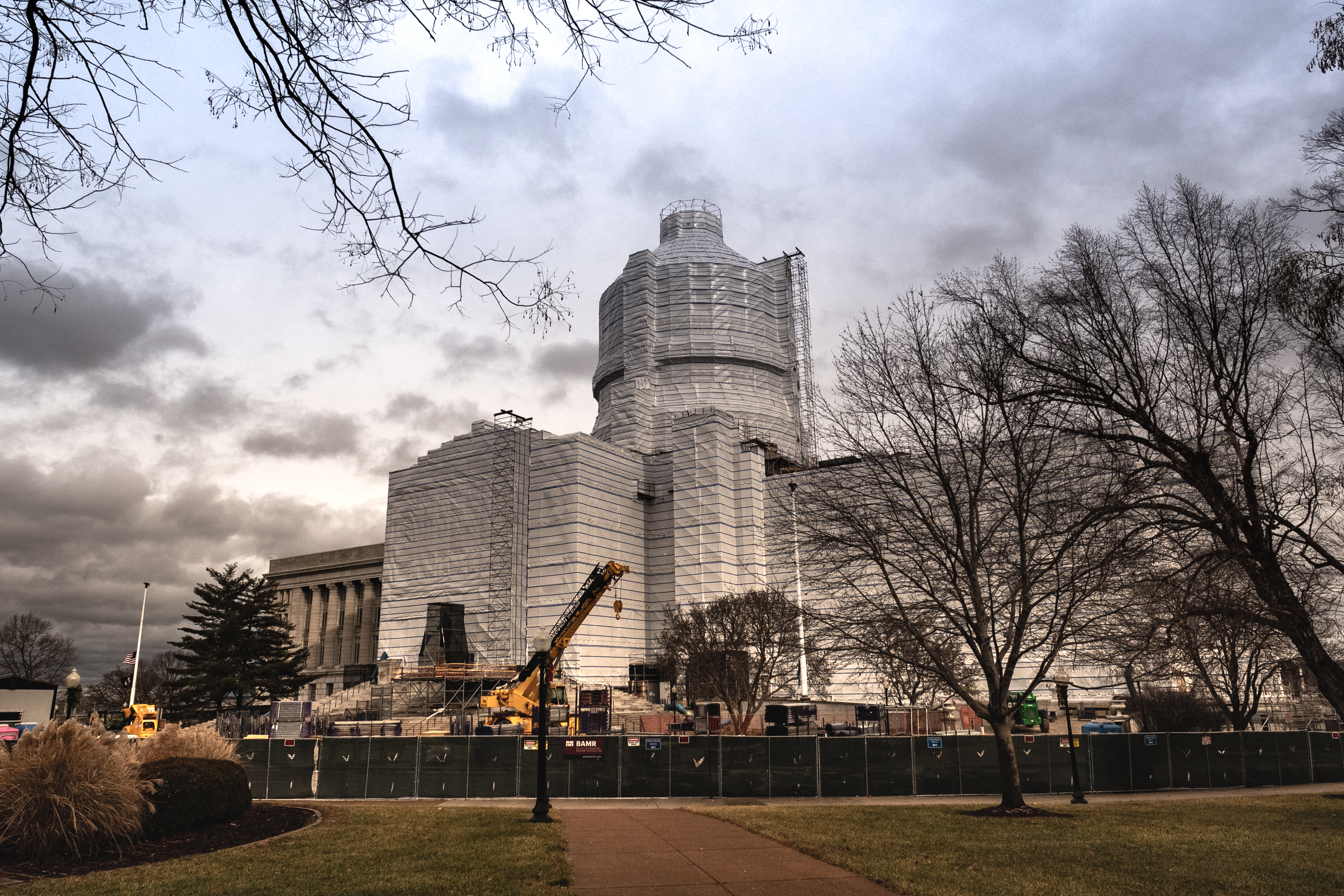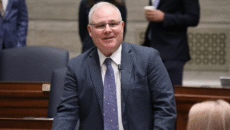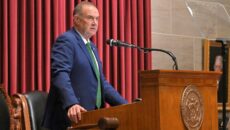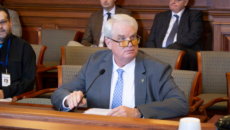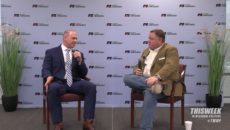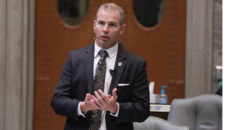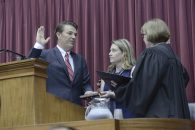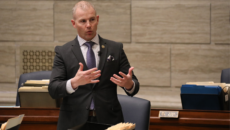JEFFERSON CITY, Mo. — Lawmakers will hastily flock back to the capital city this week for just a short period in order to pass the supplemental budget onto the governor.
The House passed the supplemental budget — which allocates $33 million in federal relief funds in addition to $7 million in state funds made available with Gov. Mike Parson’s emergency declaration — in mid-March before the Capitol closed for the legislative spring break.
But the statehouse has remained shuttered as the coronavirus pandemic continued to spread throughout Missouri — like the rest of the world — and a representative tested positive for COVID-19.
Parson had given the General Assembly an April 24 deadline to approve the supplemental budget — and lawmakers expected to fast track it next week. But with the state under a stay at home order, things will be different at the Capitol, from accessibility to the Senate floor. Here’s a look at what to expect next week.
The process will be quick
The General Assembly is expected to take up and pass the supplemental budget in a manner of only two days.
The Senate will convene Tuesday and Wednesday. The full body will need to meet on Tuesday at 11 a.m. to officially refer the House package to the Senate Appropriations Committee which will then gather, Majority Floor Leader Caleb Rowden told The Missouri Times.
Republican Sens. Dan Hegeman, Lincoln Hough, Justin Brown, Mike Cunnigham, Bill Eigel, Denny Hoskins, Jeanie Riddle, David Sater, and Wayne Wallingford sit on the committee along with Democratic Sens. Lauren Arthur, Jamilah Nasheed, John Rizzo, and Brian Williams.
As the plan stands, the Senate will vote the bill out Wednesday morning. House leadership has already said the lower chamber will stand ready to “immediately convene” to TAFP and send the package to the governor.
The public can livestream the entire process
Streaming capabilities will be in place for Missourians to watch lawmakers handle the supplemental budget. While the Senate only has audio streaming capabilities, Rowden said work is being done for video streaming to be available also.
Additionally, the committee room where the Appropriations Committee will gather already has livestream capabilities.
The House already offers video streams of both floor and committee hearing actions.
Visitors can come to the Capitol — but expect screenings
Members of the public, press, and lobbyists will be able to come to the Capitol while lawmakers are in session but will be required to use the South Carriage Entrance.
Individuals will also be routed to avoid legislators and their offices, Rowden said. In fact, members of the public will only have access to the Joint Committee Hearing Room on the first floor and visitor galleries on the fourth floor with social distancing requirements in place.
Additionally, health care professionals will be on hand to screen visitors as they enter the Capitol. Visitors can expect to get their temperatures checked and will have to answer a variety of questions, such as:
-
- Have you been symptomatic?
- Have you been in contact with someone who has tested positive for COVID-19?
- Have you traveled to a hotspot, internationally, or taken a cruise recently?
Visitors won’t be tested for coronavirus, but if someone is showing symptoms or has a temperature, a designated quarantine area will be available.
The Majority Caucus asked members of the public to utilize the streaming tools instead of coming to the Capitol in person.
“The goal is to protect the public, staff, and members of the General Assembly present in the Capitol building,” Rowden said in a statement Monday. “Cooperation by everyone during these extraordinary circumstances is vital as we work to achieve this goal.”
Individuals associated with MU Health, the Medical Association, and the Hospital Association could be on hand to assist with the screening process. Rowden predicated two health care professionals would be stationed at each entrance with a rotation system in place so as not to overwhelm anyone.
Procedure for lawmakers will also be changed
Senators’ desks are already approximately 6 ft. apart on the floor, but Rowden said the body will “take additional precautions.” Lawmakers will not need to be in the chamber for formalities or while bill handlers are making motions, majority and minority floor leaders will implement a system for if a legislator wishes to speak, and votes could be grouped instead of a straight roll call.
As for lawmakers who might be symptomatic, Rowden said he wouldn’t want to discourage anyone from participating in the process but is confident someone in that situation would remain home.
This story has been updated. It was originally published on April 3.
EDITOR’S NOTE: For up-to-date information on coronavirus, check with the CDC and DHSS.

Kaitlyn Schallhorn was the editor in chief of The Missouri Times from 2020-2022. She joined the newspaper in early 2019 after working as a reporter for Fox News in New York City.
Throughout her career, Kaitlyn has covered political campaigns across the U.S., including the 2016 presidential election, and humanitarian aid efforts in Africa and the Middle East.
She is a native of Missouri who studied journalism at Winthrop University in South Carolina. She is also an alumna of the National Journalism Center in Washington, D.C.
Contact Kaitlyn at kaitlyn@themissouritimes.com.

